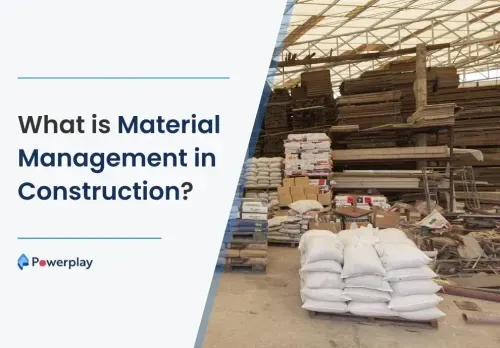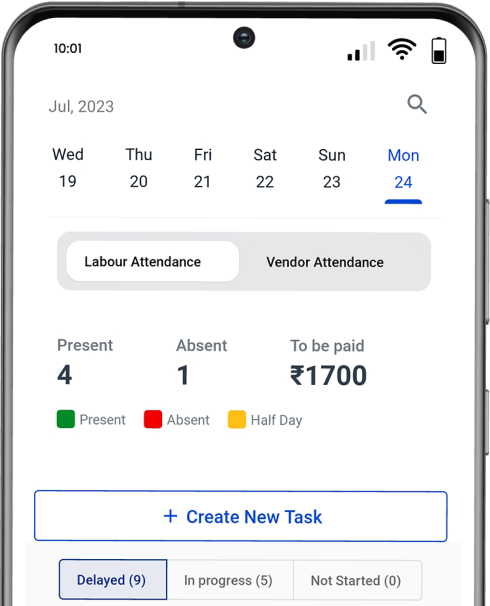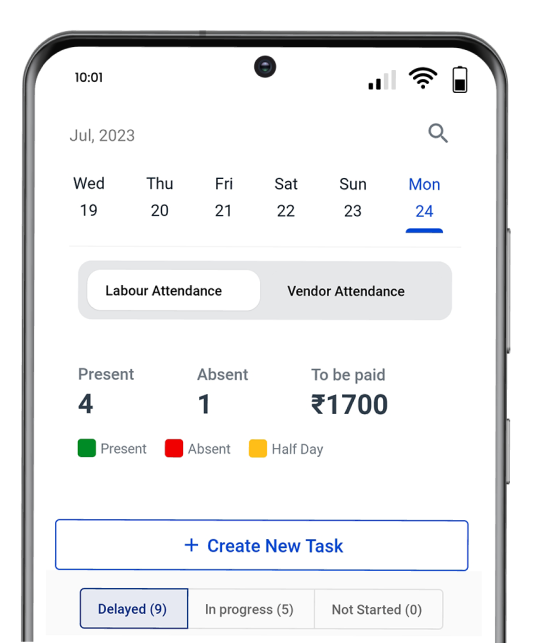What is Material Management?
-
Kumar Abhishek Anand
- October 23, 2023

Material management or resource management is an important function. A disruption in material flow and quality can lead to a loss of profits as well as customer confidence. Skilled material management is a crucial part of any supply chain strategy.
The Construction Industry Institute defines basic material management as “the planning and control of all materials and equipment so that they are requested in advance and obtained at a reasonable price and are available when required.” It also includes spare parts and materials that are used to maintain uninterrupted operation.
Some businesses might handle all aspects of material flow, including procurement, transport and storage. Other organisations, especially large manufacturers or construction companies, might have separate departments for procurement, supply chain and logistics.
Material management systems includes all activities that are related to materials. They add value to finished products and are an essential business function. It may also include procurement of machinery and equipment necessary for production processes, as well as spare parts.
Why is Material Management important?
Material management is essential to ensure that there is a continuous supply of materials to produce the products required by customers. It helps to meet production schedules and can save money on finished products. However, it also maintains quality through the materials purchased and used.
Materials management is a cross-section of purchasing, logistics, and inventory management. It is vital for all processes that rely on raw materials, machinery and maintenance.
What does a material manager do?
Material managers plan the refilling of stock and determine how much material is needed. They also create inventory levels for each item (raw material or work in progress) and communicate the information to procurement and extended supply chains. Material management includes assessing the material’s quality to ensure it meets customer requirements in accordance with a production schedule.
Material managers have one goal: to ensure consistent material flow for production. This seemingly simple task is not without its challenges. There are shipping and receiving issues, incorrect stock-taking, shipping errors, production reporting issues, as well as problems with billing and material receipts.
It is possible to plan, organise and control the flow of materials. This allows you to coordinate purchasing and shipping with the manufacturing process and final delivery. Material managers manage inventory, but the actual procurement of material may be handled by separate purchasing. They are responsible for managing the flow of materials in order to ensure timely delivery. They also manage costs and quality throughout the supply chain. The ability to track the availability of raw materials can help you save money and maximise your return on investment.
Materials Management roles include inventory analysts, inventory control and material managers, material planners, material planners, expediters, and hybrid roles such as buyer/planners. Regardless of its role, material management is focused on ensuring material supply with optimal inventory levels and minimal deviation from planned and actual results.
Objectives of Material Management
Sometimes, the objectives of material management can be referred to by the “5 R’s” of Materials Management.
1. The right material
2. The right time
3. The right amount
4. The right price
5. Reliable Sources
What Types of Material Management are there?
Materials management specialists can break down their work into five types as follows:
1. Material Requirements Planning
This is an important step in material management that directly impacts profits. The lower the material use, the lower the production costs and the greater profit. Some industries have begun to use ‘Just in Time (JIT) strategies to reduce material waste. These strategies require very low levels of inventory. This requires careful planning in order to keep production on schedule.
2. Purchase planning
Purchasing should be done economically to maintain material supplies and increase profits through lower expenses.
3. Inventory Control
An inventory may include any number of goods, including goods that are partially finished and goods that are ready to be sold. Although many industries attempt to time their purchases so that materials arrive in stores before execution begins, there are also requirements to determine the supplier levels to ensure items are available for purchase when they become unavailable.
To control the flow and quality of raw materials, bought goods, and finished parts and component flows, inventories are necessary.
4. Material Supply Management
Supply Chain Management may require materials to be distributed at different locations or production centres, each of which must be supplied continuously. Stock shortages can cause financial losses, as replacement materials are often difficult to find or production schedules are halted.
Bad storage can also cause material supply disruptions due to misplaced or damaged stock. These situations should be avoided by material management teams that can use alternative supply systems.
5. Quality Control
Good quality materials are also essential for quality control. Materials management can be influenced by the application and include factors such as durability, dimensional accuracy or reliability, performance, reliability, aesthetic value, and dependability.
Each of these five types must work together to ensure the success of material management, from supply and purchase to utilisation.
Share
Kumar is a digital content professional with more than 2 years of experience in Blog writing, copywriting and scripting. His passion lies in the art of creating convincing content that plays a major role in converting leads for SAAS businesses.












